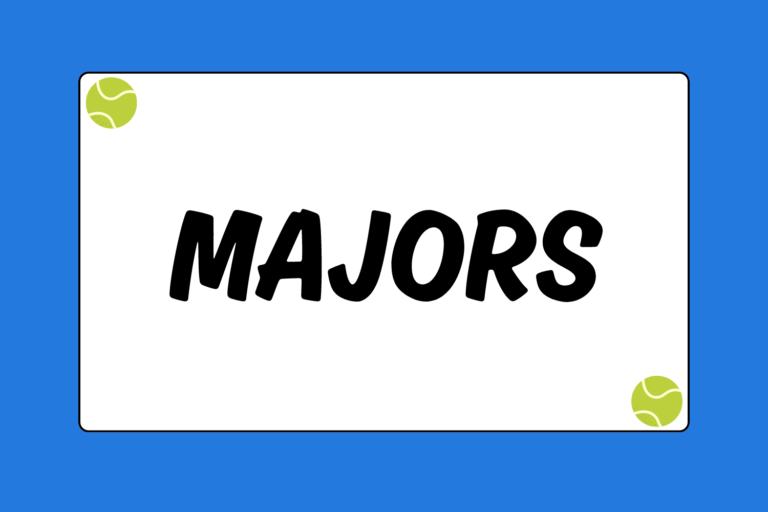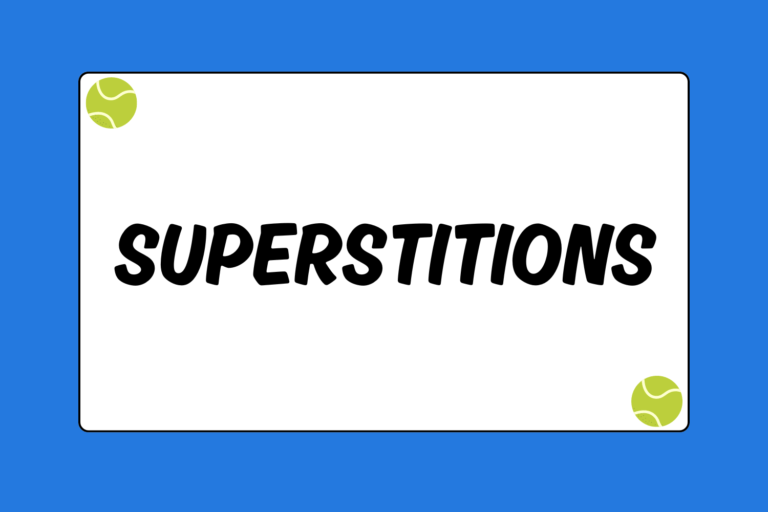Superior tennis players normally flourish by limiting their mistakes — double faults are a rarity, and unforced errors can be the determining factors in a close match. Top-notch opponents make you pay for lazy, unnecessary blunders, so advanced players need a well-balanced game that includes a wide array of shots. However, even the most competitive players are guilty of silly slip-ups. This tennis guide analyzes three prevalent mistakes at the advanced level.
1. Giving in to Defeat
As a dedicated tennis player, there are few worse feelings than struggling to win games. Sometimes it feels like your stroke has taken the day off and that the tennis gods are conspiring against you. Balls sail out of play as they catch unforeseen wind currents, and the net seemingly grows taller as the match drags on, sucking in every ball that leaves your strings.
You need to rid yourself of any apprehension or sense of concern during a match. Confidence has a peculiar influence on your game, and your knees can tremble like toothpicks in a windstorm without it. Your game will crumble the moment you start doubting your abilities, so stay positive. Rather than dwelling on your mistakes, assess what you need to improve specifically.
Too many players accept failure early on in a match, making it impossible to bounce back from a rough start. Good tennis players find a way to frustrate their opponents, so don’t make your adversary’s job easier by rolling over and admitting defeat. Instead, focus on making improvements and stick with what’s working. Attack the net if you’re struggling from the baseline. Mix in some serve and volleys, and use any strategy that might throw your opponent off his game. Remember, it doesn’t matter how or when you win games — dropping the first set 6-0 and winning the next two sets still equates to a victory.
“Everybody hated [Muhammad] Ali at the start; they called him cocky and arrogant and whatever else you want to call him. He believed he was the best. I don’t have a problem with someone sounding cocky and arrogant. If you want to say ‘I’m the best and I’m going to beat this guy,’ and you do, then that’s fine. It’s a different story if you don’t.”
Andy Murray
Former Number Two Singles Player in the World
2. Wrong Shot, Wrong Time
Advanced players have the ability to play both offense and defense. If your opponent leaves a ball sitting in the middle of the court, begging to be smacked for a winner, you should be able to close out the point quickly. On the other hand, you should know how to defensively slice the ball back over the net and stay alive if you’re on the run. The ability to balance your game is key. As much as you want to control each and every point, your opponent will undoubtedly surprise you, force you to scramble, or hit an overpowering shot.
Don’t overreact when your opponent dictates a point. Many advanced players try to hit an aggressive offensive shot when they’re on the defensive, which normally leads to a quick error. If you’re on defense, battle for as long as you can and extend the point. Keep the ball deep in the court, and recover back to the center hash mark. The longer the point drags on, the harder it becomes to maintain control.
For example, if your opponent hits a solid approach shot, don’t try to hit an immediate winner. Although winners are tempting, focus on extending the point. Place the ball around his feet as he charges the net and force him into a difficult shot. You can mix in a passing attempt every now and then, but it’s unlikely that you’ll consistently hit clean winners. Swing aggressively when you have the opportunity to do so, but play defensive tennis when necessary.
3. Why the Hurry?
There’s nothing better than storming through a 35-minute match and trouncing your opponent 6-0, 6-0. Unfortunately, few victories are quick and easy. Matches generally drag on for hours and the battle is hard fought. Many advanced players, however, mistakenly play as if they can end the match in one swing and force themselves into a hole by trying to speed up the “victory.”
The player who is more mentally and physically prepared for a long, strenuous match generally has the advantage. Play aggressively, but don’t overhit and try to bury your opponent with each and every swing. Many players actually extend the length of their matches by playing overly aggressive because they commit more errors and end up losing more games (and possibly sets).
Focus on playing smart tennis and look for the easiest ways to exploit your opponents’ weaknesses. Don’t be afraid to take chances every now and then — winners and aces are great ways to boost your confidence and build momentum. But, don’t try to steamroll your opponent off the court in the first game, either. An ultra-aggressive mindset can end up backfiring, so take your time and play with consistency.
Mind Games
Tennis is a cerebral game: Your state of mind and mental approach can be your strongest asset or worst enemy. Most mistakes at the advanced level are mental miscues rather than physical limitations, so try to be the more mentally in-tune player. Play with confidence, but don’t fall into the traps outlined in this guide!





